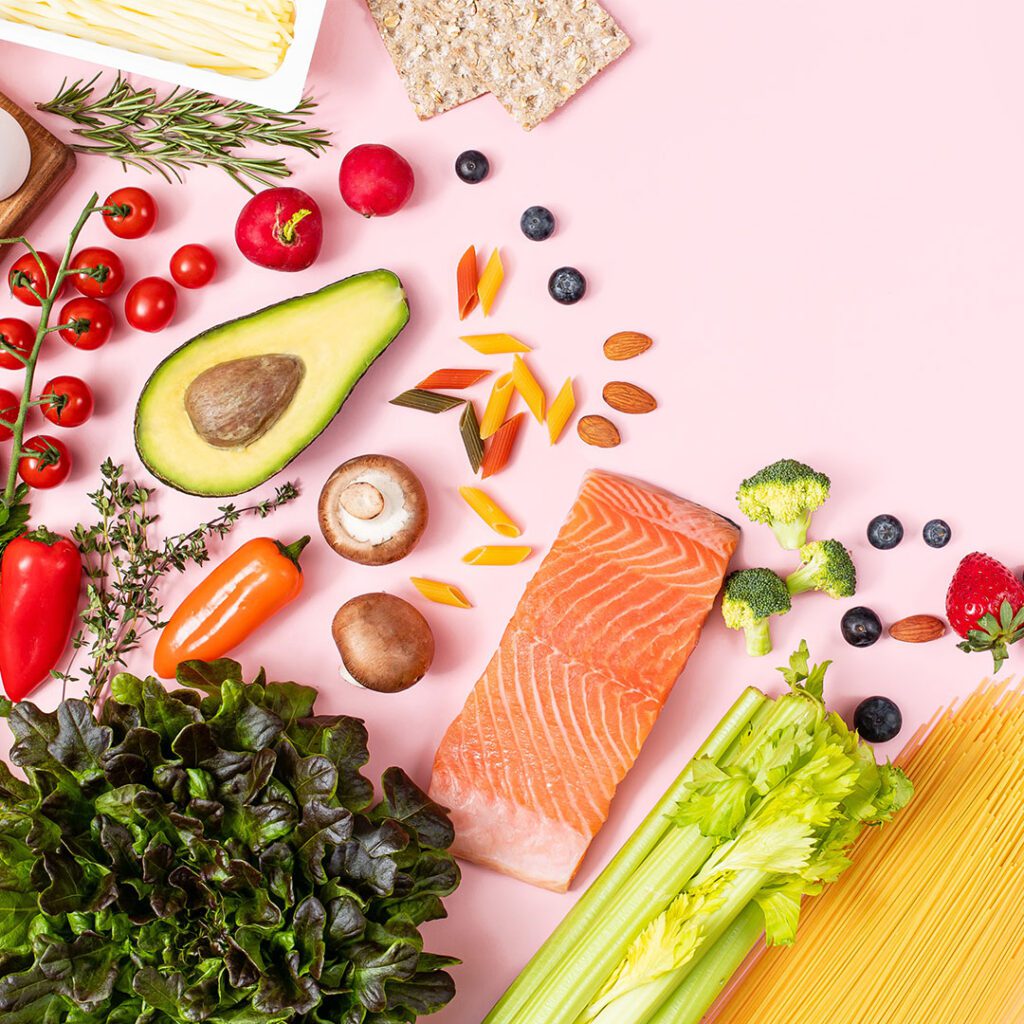
This month we are talking to Caroline Farrell (www.carolinefarrell.com), a registered nutritionist with a special interest in menopause. In this blog post, she shares her top nutrition tips to support a healthy transition through menopause.
Menopause, typically occurring between the ages of 45 and 55, brings significant hormonal changes, most notably a decline in oestrogen. These changes can result in various symptoms, including hot flushes, mood swings, and decreased bone density. While menopause is a natural part of ageing, adjusting your diet can help manage these symptoms and protect your long-term health.
Protein
As oestrogen levels drop, women may experience a loss of lean muscle mass, which is vital for maintaining a healthy metabolism. Adequate protein intake is crucial for supporting muscle repair and retention during this time. Prioritise protein-rich foods such as lean meats, poultry, fish, eggs, legumes, tofu, and dairy products. Aim for 1-1.2g of protein per kilogram of body weight daily, combined with strength exercises, to help preserve muscle mass.
Bone Building Nutrients
Menopause often leads to a decline in bone density, increasing the risk of osteoporosis. This is primarily due to reduced oestrogen, which plays a key role in bone health. To counteract this, ensure your diet includes sufficient calcium and Vitamin D.
Calcium-rich foods include dairy products, calcium-fortified plant-based drinks, tinned fish (with bones), spinach, tofu, baked beans, and dried figs. Vitamin D is equally important, as it aids calcium absorption and regulates oestrogen production. Since sunlight is the main source of Vitamin D, and levels are often low in the UK during winter, a daily supplement is recommended.
Phytoestrogens
Phytoestrogens are plant compounds that have a similar chemical structure to oestrogen. They bind to oestrogen receptors, acting as hormone regulators. In this way, they may help reduce menopausal symptoms such as hot flushes and night sweats by compensating for some of the lost oestrogen activity.
Foods rich in phytoestrogens include:
- Soy products (tofu, tempeh, edamame)
- Flaxseeds and sesame seeds
- Legumes (lentils, chickpeas)
- Berries, apricots
- Barley
Foods for Gut Health
The gut microbiome, a community of bacteria and other microorganisms in the digestive system, plays a crucial role in overall health, especially during menopause. Changes in oestrogen during menopause can alter the microbiome. Supporting your gut health can help manage oestrogen levels and ease menopausal symptoms. Probiotic-rich foods like yoghurt, kefir, sauerkraut, and miso, along with prebiotic fibres from garlic, onions, bananas, and oats, can promote a healthy microbiome.
Caffeine and Alcohol
Some women find that reducing caffeine, alcohol, and spicy foods can help alleviate hot flushes. Monitoring your intake of these potential triggers may offer additional relief.
Conclusion
Menopause brings many physical changes, but nutrition can be a powerful ally in managing symptoms and promoting long-term health. A diet rich in protein, calcium, Vitamin D, phytoestrogens, and gut-friendly foods, combined with reducing caffeine and alcohol, can make a positive difference.
